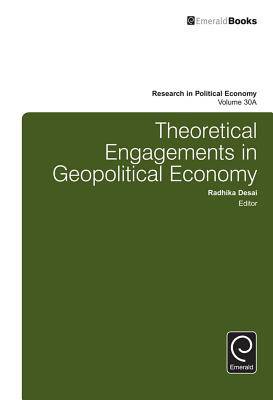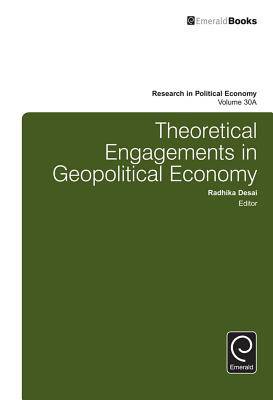
- Afhalen na 1 uur in een winkel met voorraad
- Gratis thuislevering in België vanaf € 30
- Ruim aanbod met 7 miljoen producten
- Afhalen na 1 uur in een winkel met voorraad
- Gratis thuislevering in België vanaf € 30
- Ruim aanbod met 7 miljoen producten
Zoeken
Theoretical Engagements in Geopolitical Economy
€ 150,95
+ 301 punten
Omschrijving
This work advances geopolitical economy as a new approach to understanding the evolution of the capitalist world order and its 21st century form of multipolarity. Neither can be explained by recently dominant approaches such as 'U.S. hegemony' or 'globalization': they treat the world economy as a seamless whole in which either no state matters or only one does. Today's 'BRICs' and 'emerging economies' are only the latest instances of state-led or combined development. Such development has a long history of repeatedly challenging the unevenness of capitalism and the international division of labour it created. It is this dialectic of uneven and combined development, not markets or imperialism, which has spread productive capacity around the world. It also ensured that the 'hegemony' of the UK would end and attempts to create that of the US would peter out into multipolarity. This two part volume paves the way, advancing Geopolitical Economy as a new approach to the study of international relations and international political economy. They expose the theoretical limitations of the latter in Part I and the analytical limitations in Part II.
Specificaties
Betrokkenen
- Uitgeverij:
Inhoud
- Aantal bladzijden:
- 304
- Taal:
- Engels
- Reeks:
- Reeksnummer:
- nr. 30
Eigenschappen
- Productcode (EAN):
- 9781785602955
- Verschijningsdatum:
- 22/09/2015
- Uitvoering:
- Hardcover
- Formaat:
- Genaaid
- Afmetingen:
- 152 mm x 229 mm
- Gewicht:
- 576 g

Alleen bij Standaard Boekhandel
+ 301 punten op je klantenkaart van Standaard Boekhandel
Beoordelingen
We publiceren alleen reviews die voldoen aan de voorwaarden voor reviews. Bekijk onze voorwaarden voor reviews.










